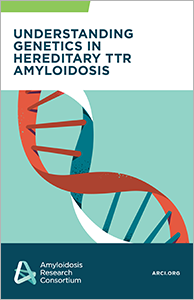Library
We would be delighted to mail you a physical copy of these booklets as well. To get yours, use the request form:
Filter By:
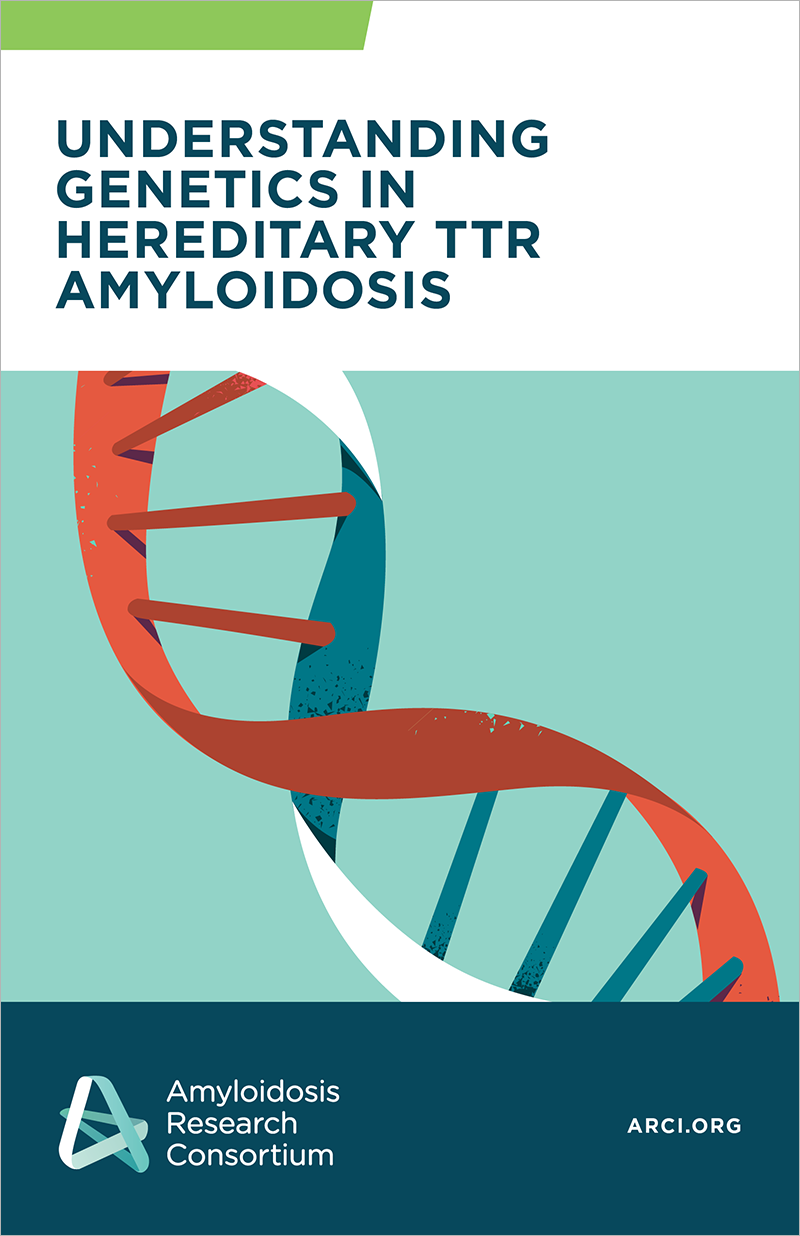
Understanding Genetics in Hereditary ATTR Amyloidosis
There are over 120 different mutations that have been identified in the TTR gene and as research continues, it is possible that more may be discovered. Each mutation causes a different pattern of disease onset, symptoms and outlook.
Read More
Library
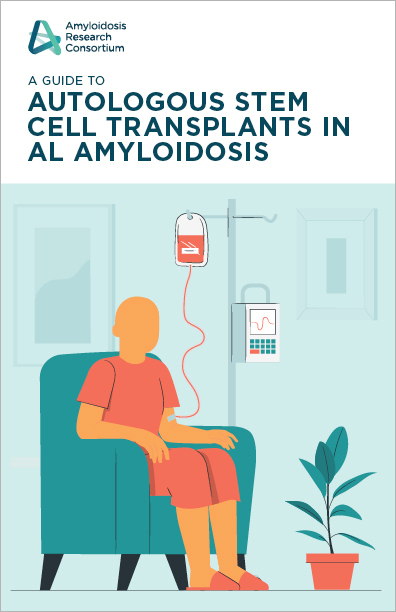
Autologous Stem Cell Transplants in AL Amyloidosis
The Autologous stem cell transplant (ASCT) procedure has been used as a treatment option for AL patients for several years. Eligible patients undergo the process of stem cell collection, high-dose chemotherapy, and transplantation of the healthy stem cells back into the body. This process can be quite challenging for patients, as the body undergoes a complete immune system wipe out and regeneration. The purpose of this booklet is to provide insight into the process, including tips and recommendations for preparation.
Read More
AL Amyloidosis
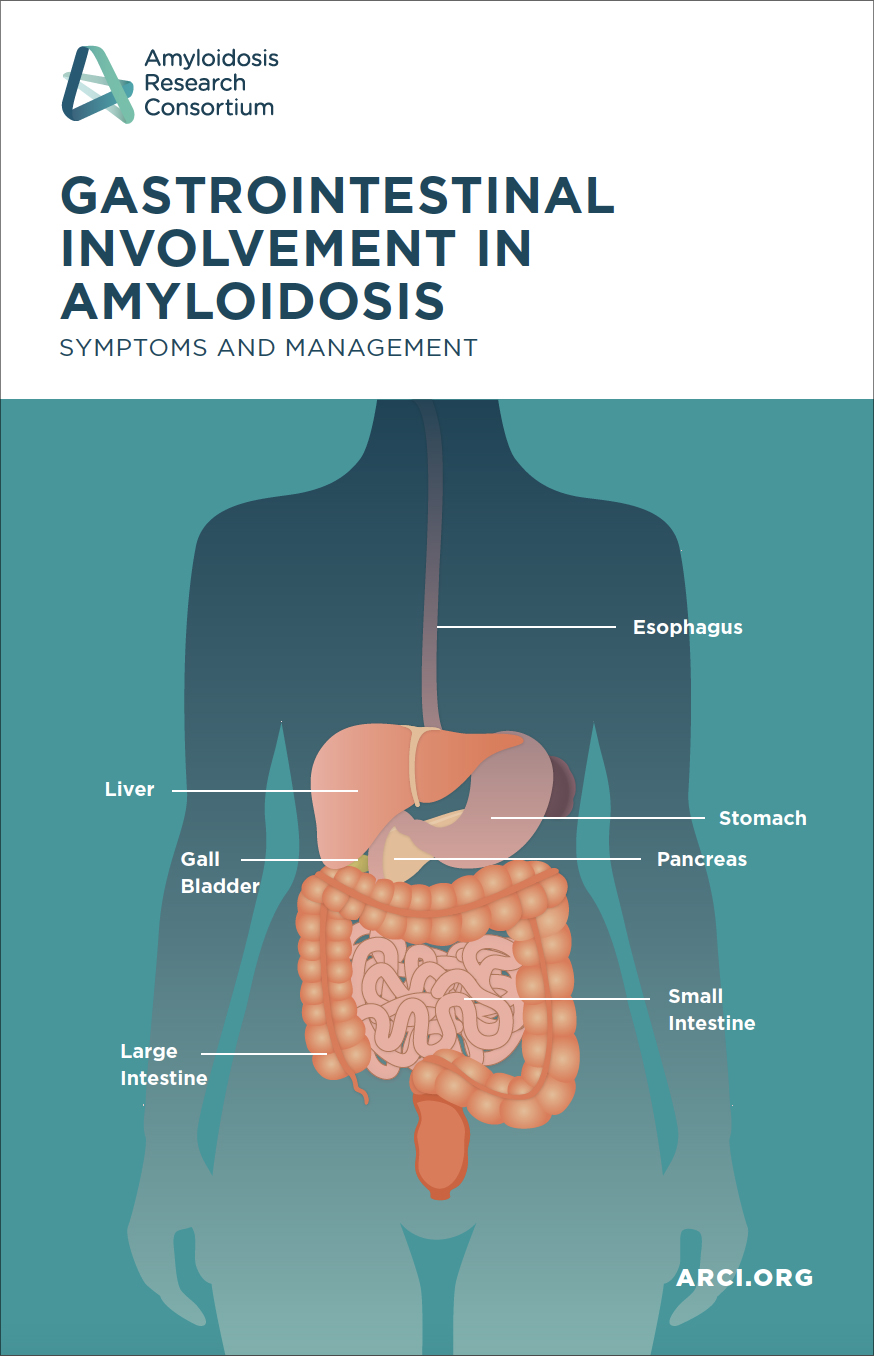
Gastrointestinal Involvement in Amyloidosis
Many types of amyloidosis can affect patients’ gastrointestinal (GI) tract, causing painful, annoying, or even debilitating symptoms. It is common for patients with amyloidosis to experience GI involvement and in fact, some patients may have GI-related symptoms as their most predominant sign or chief complaint.
Read More
AL Amyloidosis
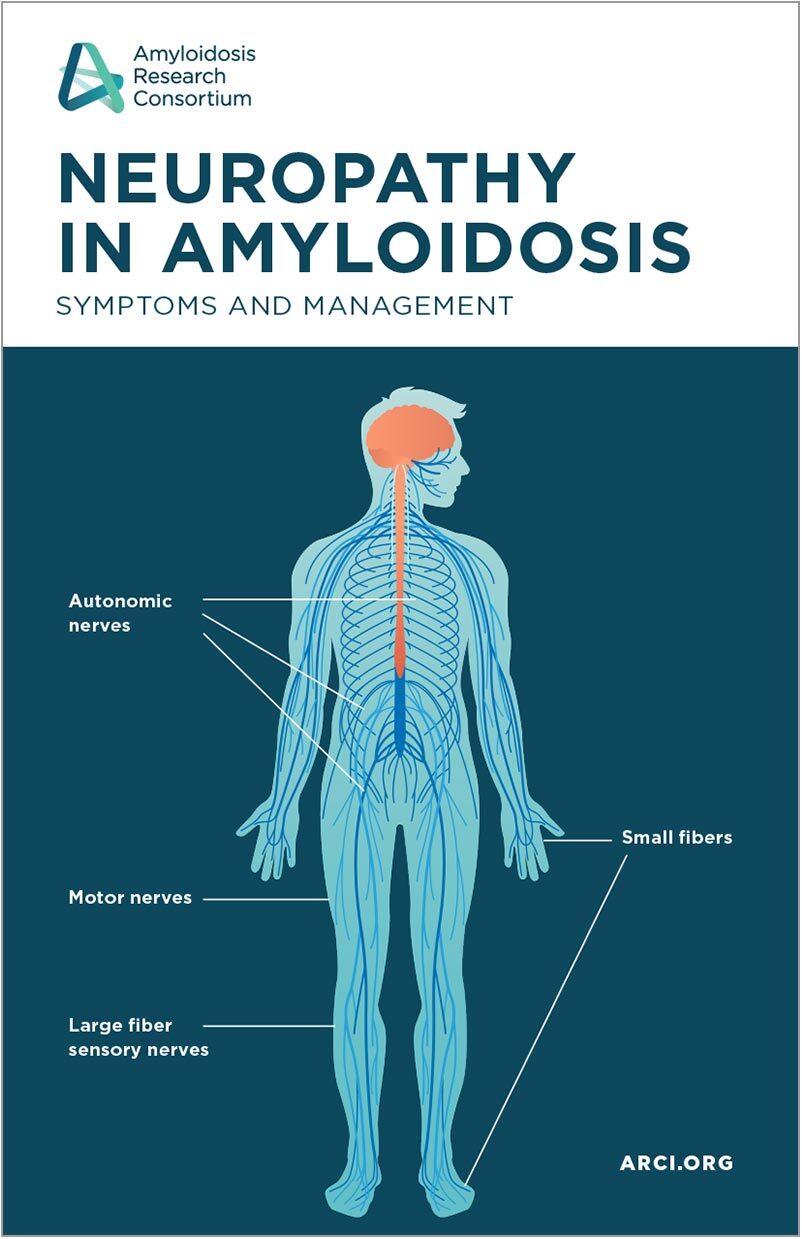
Neuropathy in Amyloidosis
Many types of amyloidosis can affect patients’ nerves, causing painful, annoying, or even debilitating symptoms. It is common for patients with amyloidosis to experience neuropathy and in fact, some patients may have nerve-related symptoms as their most predominant sign or chief complaint.
Read More
AL Amyloidosis
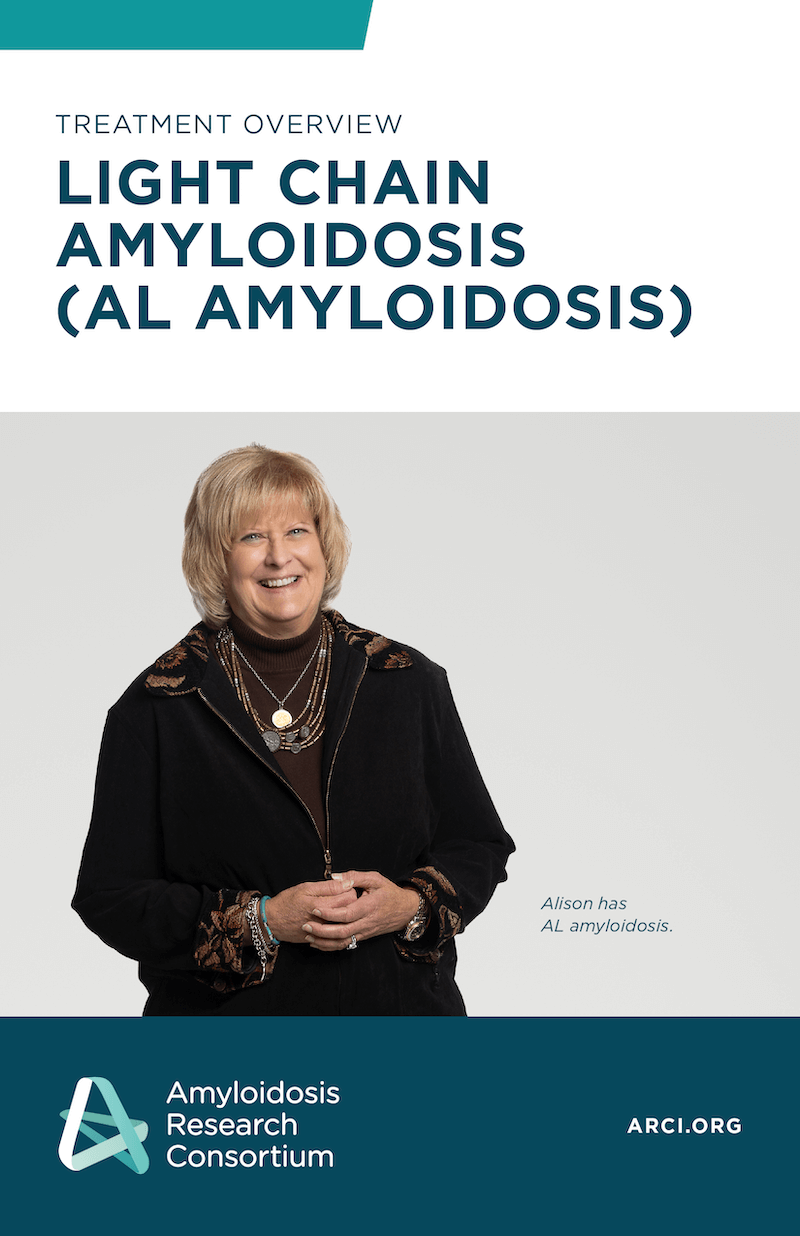
Treatment Overview: Light Chain (AL) Amyloidosis
AL amyloidosis is a serious disease. However, many patients benefit from current therapies, with their lives improved and prolonged, often for many years.
Read More
AL Amyloidosis
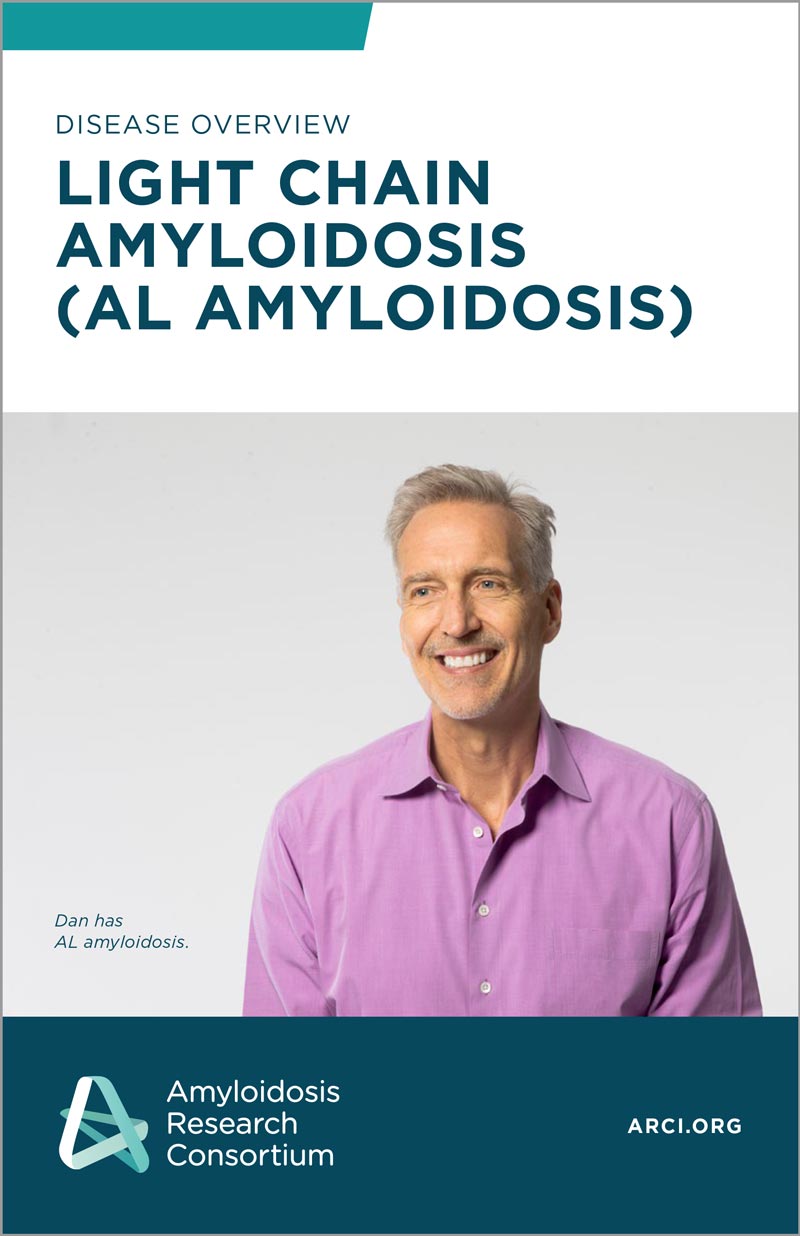
Disease Overview: Light Chain (AL) Amyloidosis
A diagnosis of light chain amyloidosis (AL amyloidosis) can be confusing and stressful, bringing up many feelings and questions. It is important to learn as much as possible about the disease, its treatment, and how it might affect you.
Read More
AL Amyloidosis
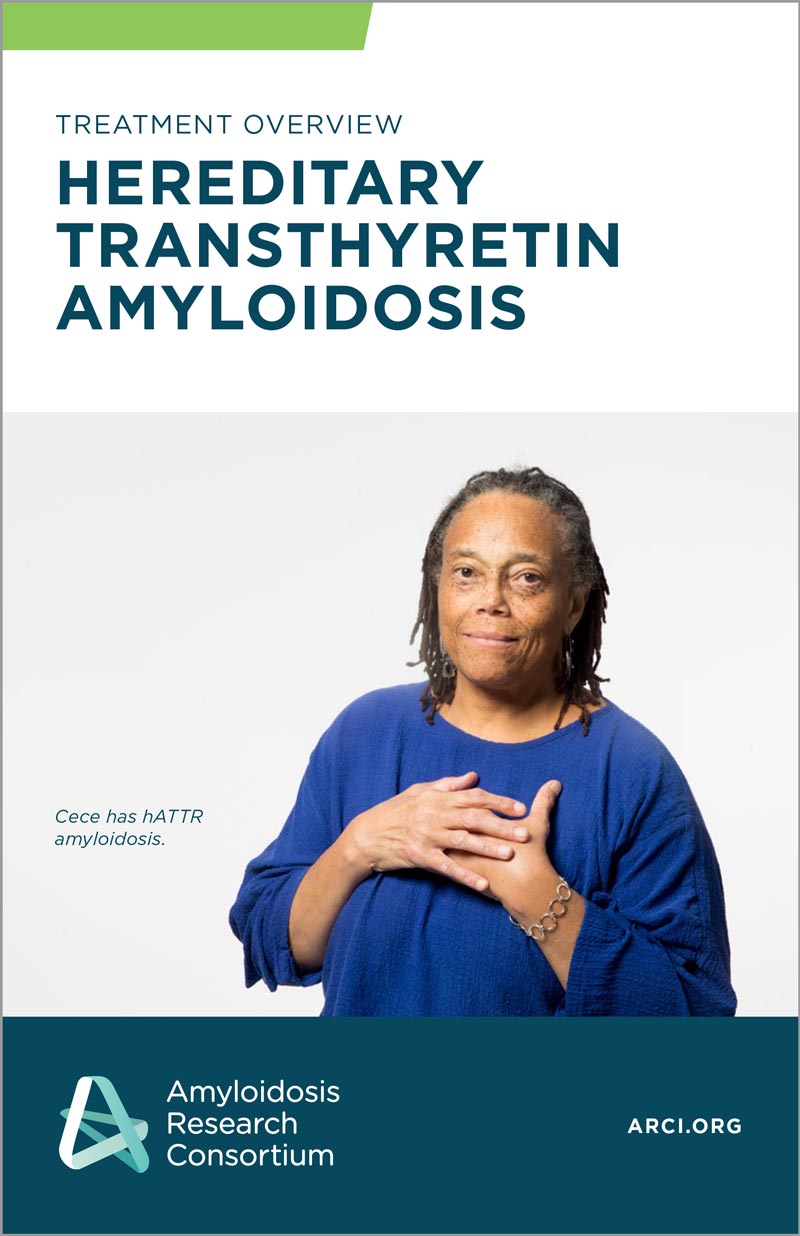
Treatment Overview: Hereditary Transthyretin Amyloidosis
We live in a time of rapid advances in genetic know-how and pharmacological technologies. The pace of discovery is accelerating, driving the development of new therapies, with 3 newly approved treatments. The exact course of hATTR varies with each patient, but the outlook holds promise for all. This booklet is designed as a comprehensive guide to help you and your family navigate treatment resources and options that would be most effective for you.
Read More
Library
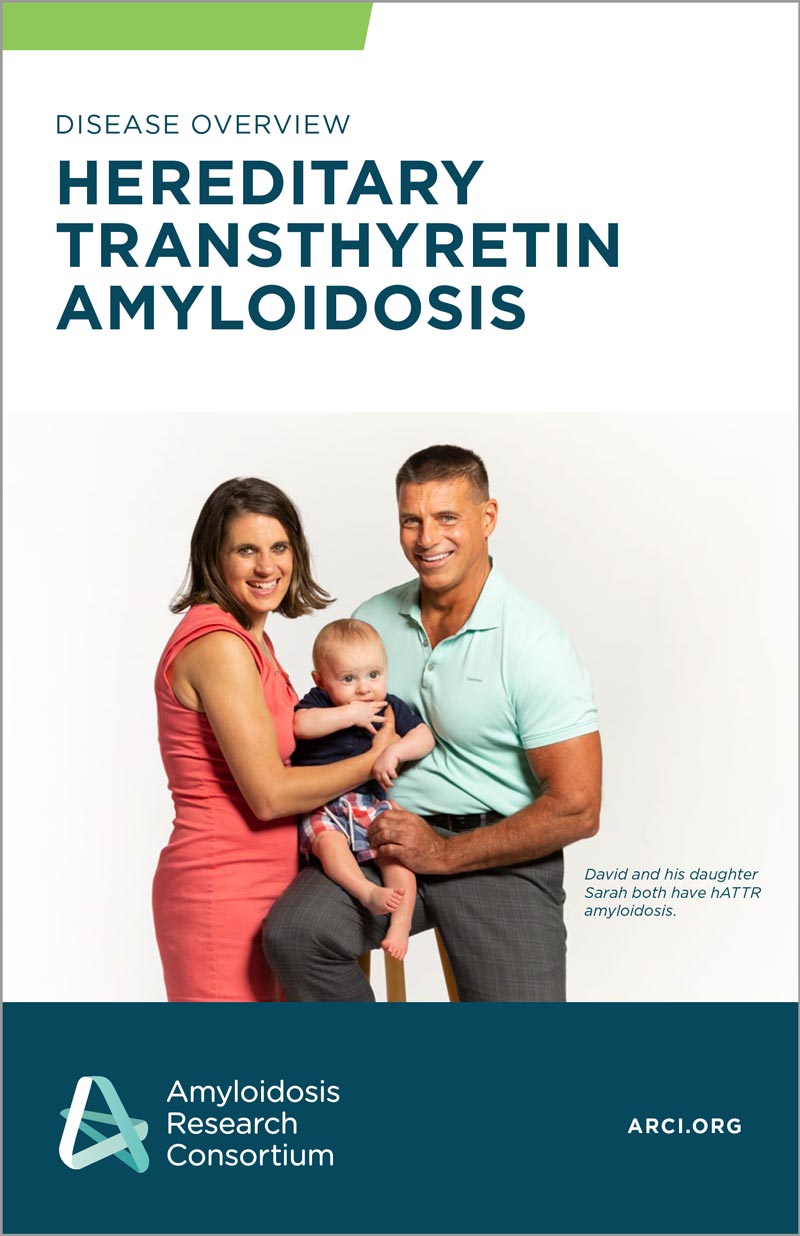
Disease Overview: Hereditary Transthyretin Amyloidosis
Hereditary transthyretin amyloidosis (hATTR) is a rare, systemic disease passed down through families. Caused by genetic mutations in the transthyretin (TTR) gene, it leads to a buildup of abnormal proteins called amyloid in one or more organs and tissues, impairing their function. Left untreated, hATTR can cause life-threatening complications. Early diagnosis and treatment are critical to prevent or delay progression of hATTR.
Read More
Library
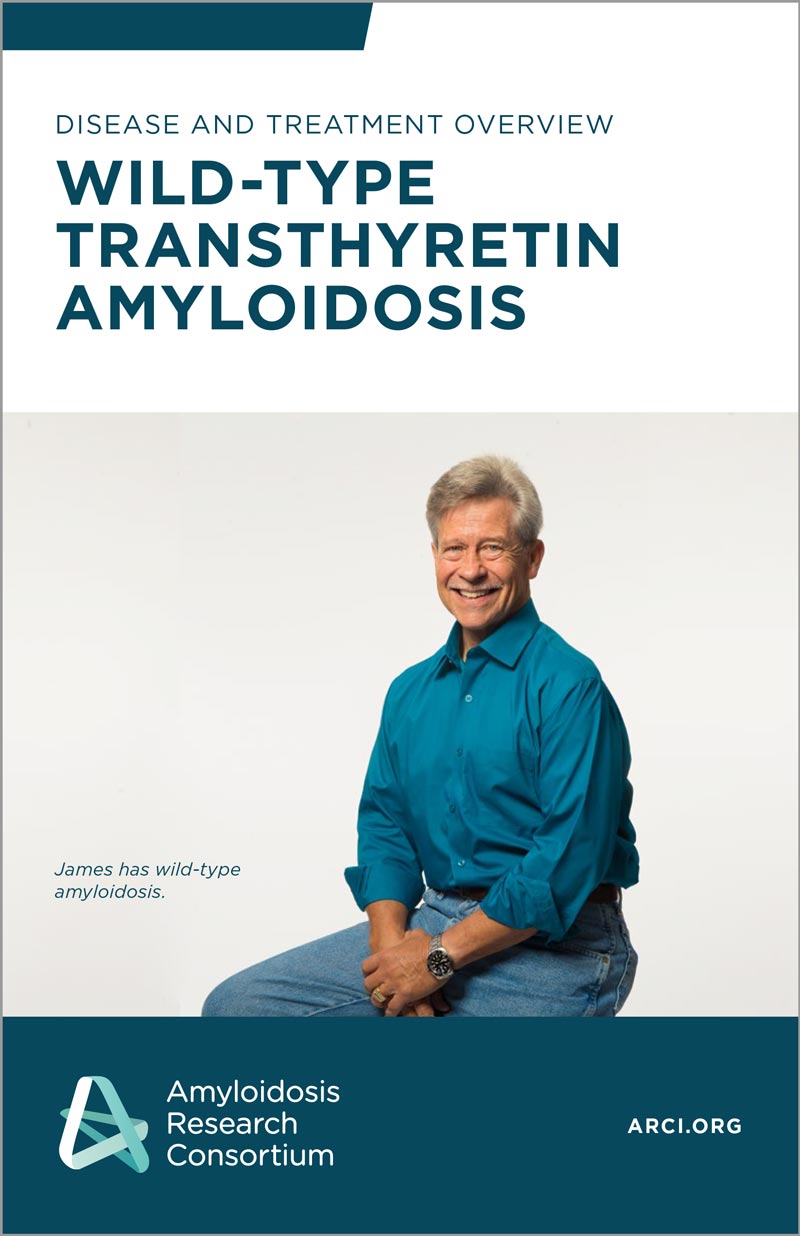
Disease and Treatment Overview: Wild-Type Transthyretin Amyloidosis
Wild-type transthyretin amyloidosis (ATTRwt) is an age-related disease caused by transthyretin (TTR) proteins that become unstable, misfold, and build up in organs, impairing their function. It is a slowly progressive condition that affects older people, most often Caucasian men over 65 years of age. Heart disease is the hallmark of ATTRwt, but it is commonly preceded by other conditions, such as carpal tunnel syndrome or spinal stenosis.
Read More
Library
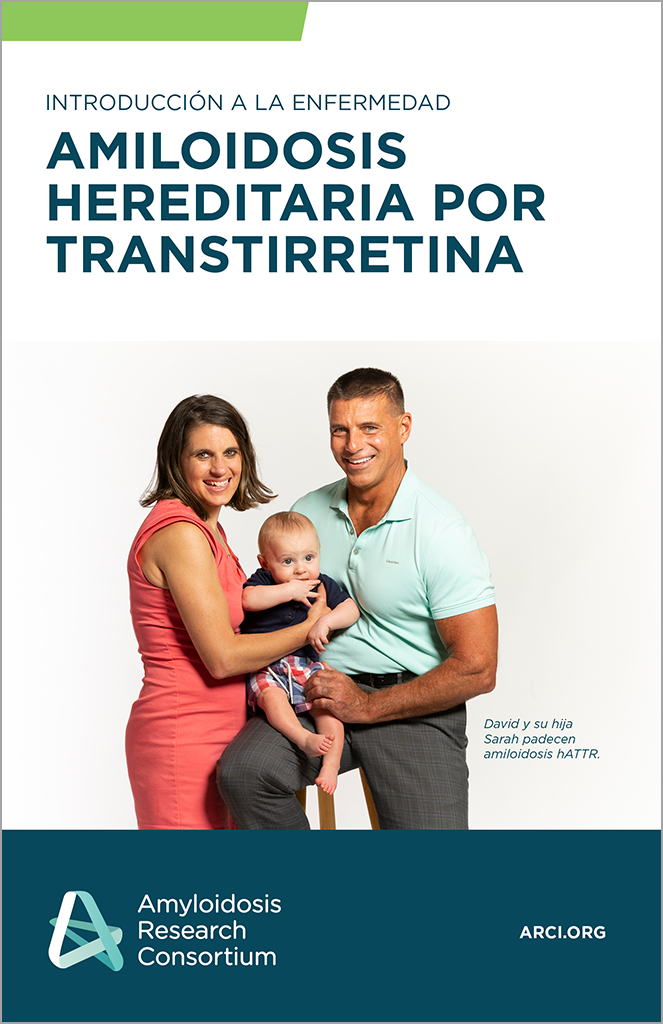
Introducción a la Enfermedad: Amiloidosis Hereditaria Por Transtierrentia
La amiloidosis hereditaria por transtiretina (hATTR) es una enfermedad sistémica poco común que se transmite de padres a hijos. Causada por mutaciones genéticas en el gen de la transtiretina (TTR), provoca una acumulación de proteínas anormales llamadas amiloide en uno o más órganos y tejidos, lo que altera su función. Si no se trata, hATTR puede causar complicaciones potencialmente mortales. El diagnóstico y el tratamiento tempranos son fundamentales para prevenir o retrasar la progresión de hATTR.
Read More
Library
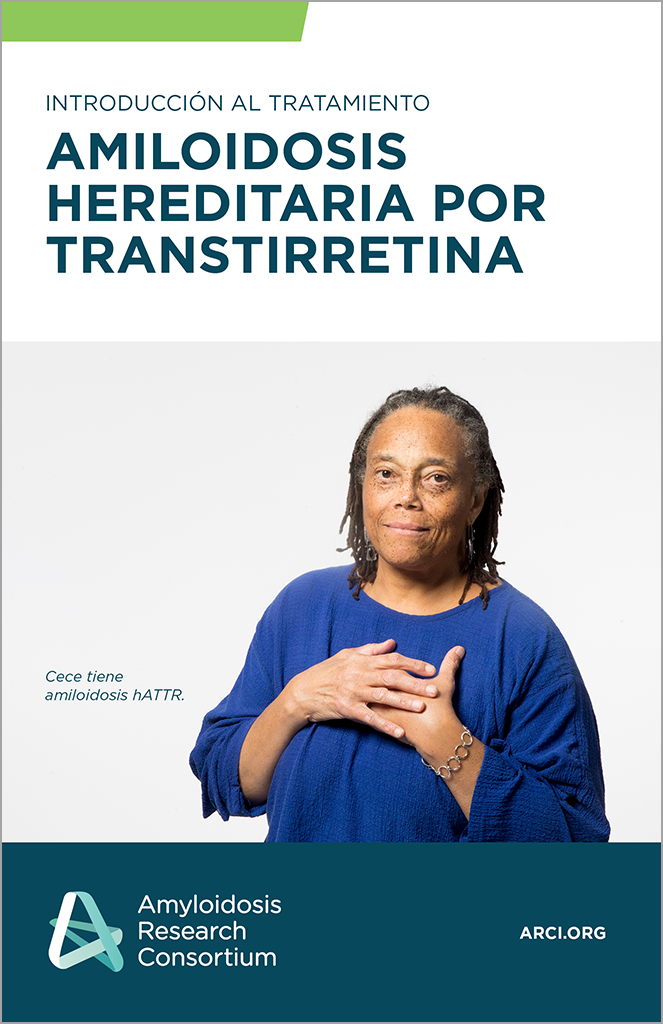
Introducción al Tratamiento: Amiloidosis Hereditaria Por Transtierrentia
Vivimos en una época de rápidos avances en los conocimientos genéticos y las tecnologías farmacológicas. El ritmo de los descubrimientos se está acelerando, impulsando el desarrollo de nuevas terapias. El curso exacto de hATTR varía según cada paciente, pero el pronóstico es prometedor para todos. Este folleto está diseñado como una guía integral para ayudarlo a usted y a su familia a navegar por los recursos y opciones de tratamiento que serían más efectivos para usted.
Read More
Library
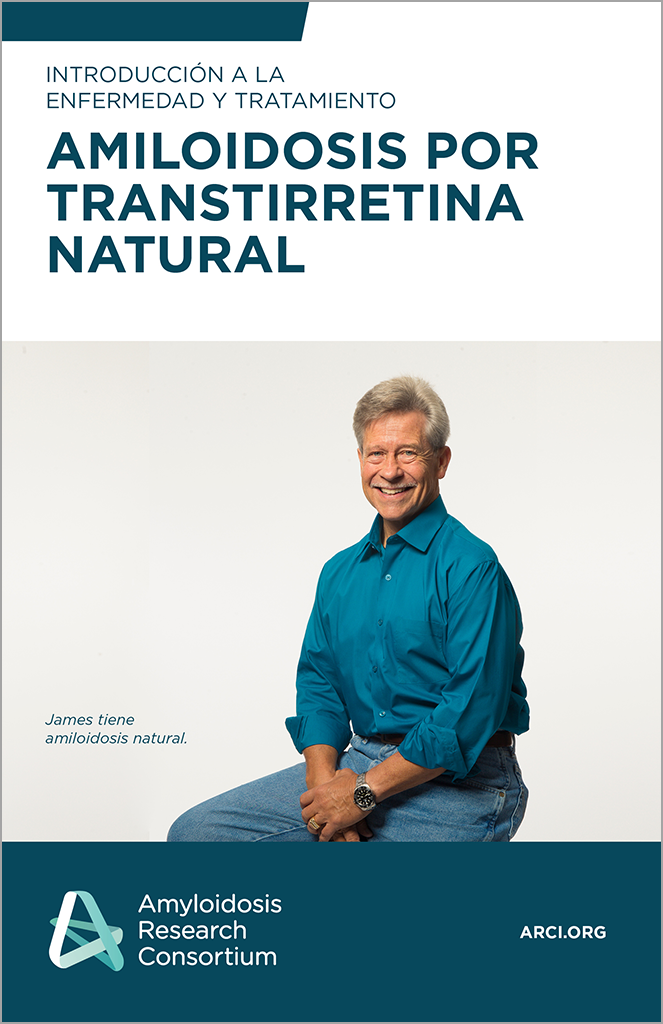
Introducción a la Enfermedad y Tratamiento: Amiloidosis Por Transtirrentia Natural
La amiloidosis por transtiretina de tipo salvaje (ATTRwt) es una enfermedad relacionada con la edad causada por proteínas transtiretina (TTR) que se vuelven inestables, se pliegan mal y se acumulan en los órganos, lo que altera su función. Es una afección de progresión lenta que afecta a personas mayores, con mayor frecuencia a hombres caucásicos mayores de 65 años. La enfermedad cardíaca es el sello distintivo de ATTRwt, pero comúnmente va precedida por otras afecciones, como el síndrome del túnel carpiano o la estenosis espinal.
Read More
Library

Introducción a la Enfermedad: Amiloidosis de Cadenas Ligeras (Amiloidosis AL)
Un diagnóstico de amiloidosis de cadenas ligeras (amiloidosis AL) puede ser confuso y estresante, lo que da lugar a muchas preguntas y sentimientos. Es fundamental que aprenda todo lo que pueda sobre la enfermedad, su tratamiento y cómo le podría afectar.
Read More
AL Amyloidosis
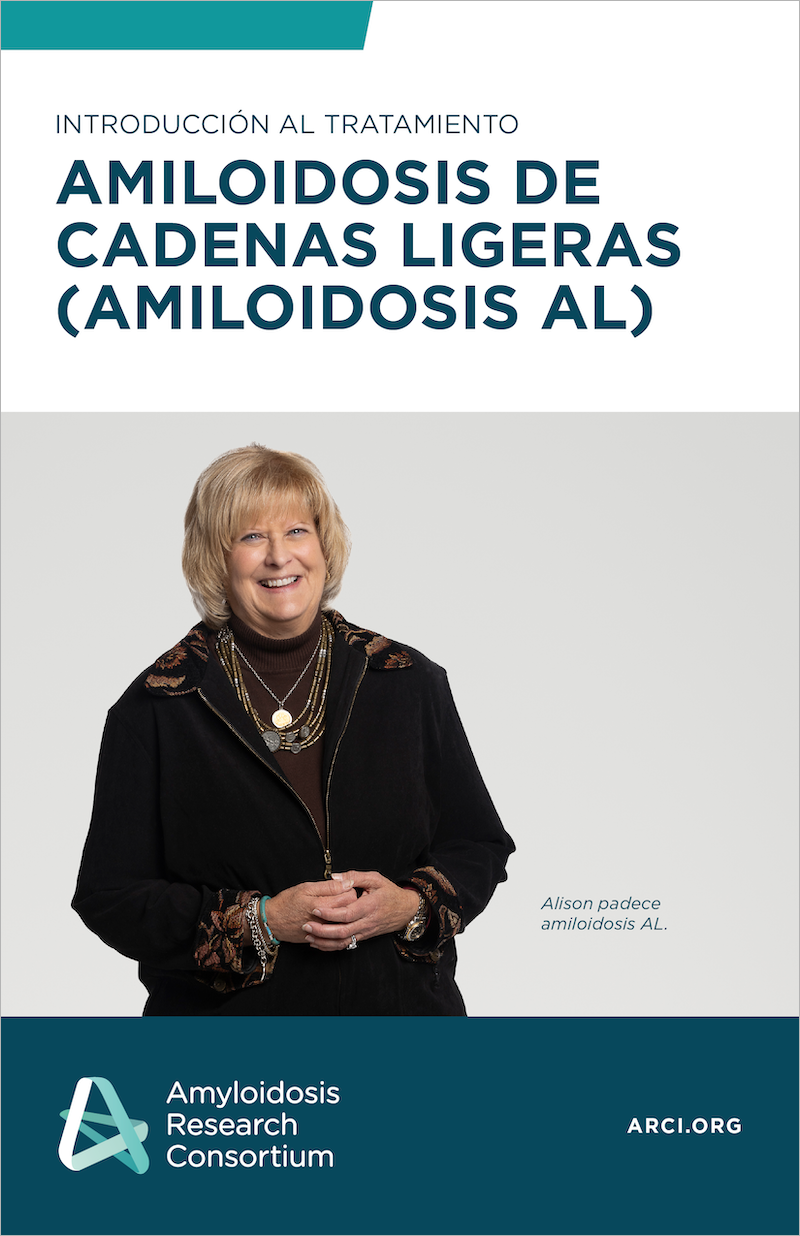
Introducción al Tratamiento: Amiloidosis de Cadenas Ligeras (Amiloidosis AL)
La amiloidosis AL es una enfermedad grave que puede ser progresiva y mortal si no se trata. Sin embargo, muchos pacientes se benefician de los tratamientos actuales, lo que mejora y prolonga su vida, a menudo durante varios años.
Read More
AL Amyloidosis
No Resources found for the chosen category




